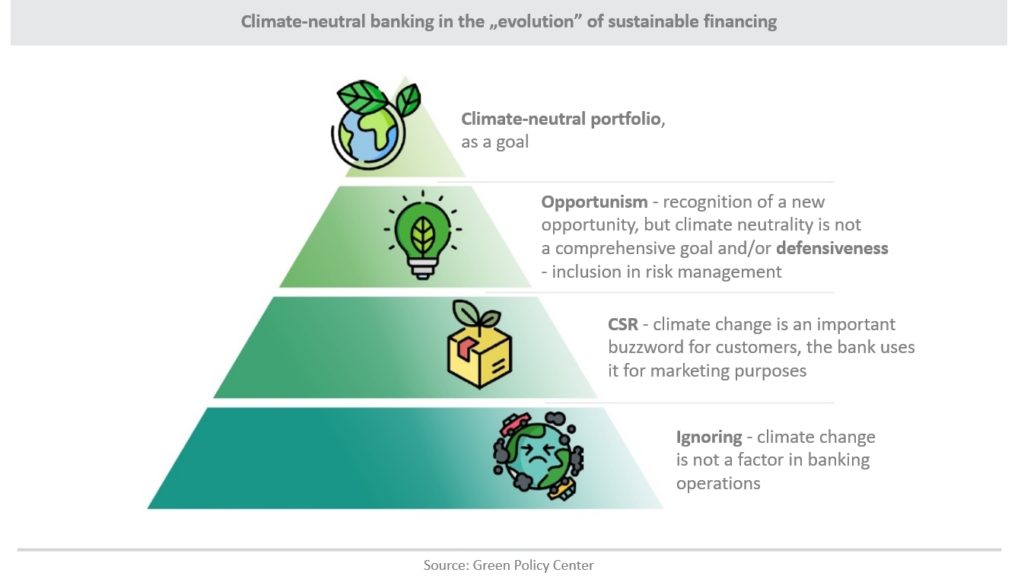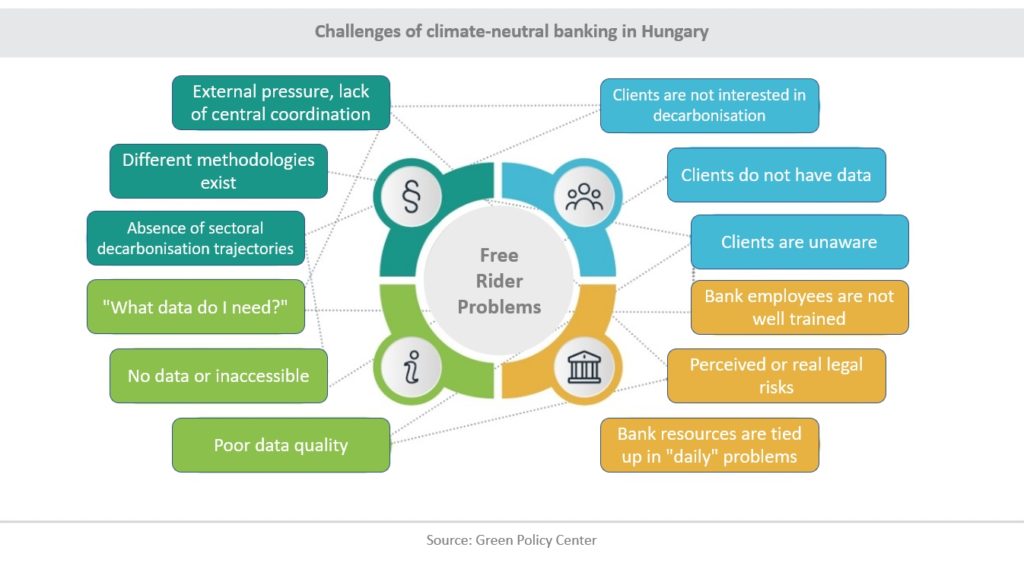“International initiatives and “good practices” could also be applied in Hungary, helplessness is just an illusion.” – claims the Green Policy Center’s recently published study, which explores the attitude of the Hungarian banking sector towards climate-neutral banking, and presents in detail the most significant obstacles currently being experienced in the country.
The spread of climate-neutral banking – which does not mean the reduction of emissions from the banks’ own activities, but the transformation of their financing and lending activities, more precisely the compliance of the latter with the 2050 net zero requirements – is one of the most important, but rarely discussed, components of preventing climate catastrophe, even though Article 2.1c of the Paris Agreement and the European sustainable finance strategies also defined this as a priority goal.
In line with the fact that the climate catastrophe cannot be prevented solely with public funds, in the developed financial markets of the world and the European Union we have witnessed serious progress of private funds in a greener direction in recent years. Nearly 80% of large global banking groups have undertaken to bring their lending activities into line with international climate goals.

But what is the situation of greening the banking sector in Hungary? In the country, apart from a few examples, however, this breakthrough is still waiting to happen, stated in the study published by the Green Policy Center on the attitude of the domestic banking sector to climate-neutral banking.
The Budapest-based think tank Green Policy Center has launched a project in 2022 to facilitate the Hungarian banking sector to align their financial flows with the climate neutrality targets. As a first major step, the project has looked at the current status quo of the bank sector in Hungary through interviews with key industry stakeholders and research. The most important results of the status quo analysis were presented in December 2022. The document concludes that the Hungarian banking sector is lagging behind internationally in terms of climate neutrality efforts, but there are already “pioneer” institutions on the market. The obstacles to climate-neutral banking in Hungary also range widely. Significant challenges are represented through:
- the lack of detailed national strategies (although Hungary was one of the first in the European Union to enshrine the 2050 climate neutrality target in law, there is a lack of detailed sectoral strategies and action plans necessary for banks’ financial planning and climate-neutral transition);
- the lack of data (the banks themselves do not know how certain projects they plan to finance qualify from a climate perspective);
- methodological difficulties (in relation to the classification of projects awaiting financing from the point of view of climate neutrality);
- lack of information on the part of customers (a significant number of companies wishing to take out a loan do not know what kind of developments and investments they need in connection with the green transition);
- challenges related to the development of banking capacity (the current training courses are not specialized enough, for example they do not put enough emphasis on climate neutrality, especially from a non-practical point of view, i.e. they do not provide guidance on how climate neutral financing should be introduced);
- aligning banking strategies to reality (banking strategy creation takes place at several levels, which are currently not sufficiently aligned with the realities of the climate crisis, while climate neutrality aspects must be reflected in the shorter-term strategies that determine current action in addition to the longer-term goals);
- and last but not least, the problem of game theory, according to which banks committing to climate neutrality may score an “own goal” commercially in the short term, if the entire banking sector does not commit to these goals.

The analysis was conducted by the experts of the Green Policy Center and the UNEP FI. The full report can be accessed in Hungarian on the Green Policy Center’s homepage below.
In the next phase of the Center’s Climate-neutral banking in Hungary project, practical proposals and recommendations will be developed for the Hungarian banks lagging behind, which can promote the sector’s commitment to climate neutrality, thereby promoting Hungary’s efforts in this direction.




